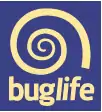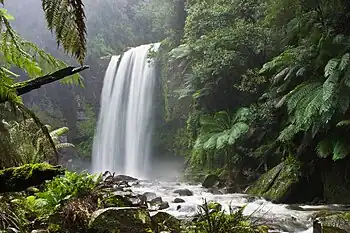 | |
| Type | Conservation charity |
|---|---|
| Founded | 2002 |
| Headquarters | Peterborough |
Area served | United Kingdom |
Key people | Germaine Greer, president Steve Backshall, vice president |
| Revenue | 1,572,352 pound sterling (2016) |
Number of employees | 23 (2016) |
| Website | www |
Buglife – The Invertebrate Conservation Trust (usually referred to simply as Buglife) is a UK-based nature conservation charity.
Structure
Buglife's head office is in Peterborough, England; with additional offices in Scotland, Wales, Northern Ireland and the South West of England.
Buglife is the only organisation in Europe devoted to the conservation of all invertebrates. Actively working to save the UK's rarest little animals; everything from bees to beetles through to worms and woodlice.
Buglife's aim is to prevent invertebrate extinctions and to maintain sustainable populations of invertebrates in the United Kingdom and beyond.
Operation
Activities undertaken by Buglife fall into the following areas:
- Undertaking and promoting study and research
- Promoting habitat management aimed at maintaining and enhancing invertebrate biodiversity
- Publicising invertebrates
History
In September 2011, Buglife contributed to BBC Radio 4's Saving Species programme.[1]
In 2015, Buglife campaigned successfully to stop a building development which had threatened the critically endangered species Nothophantes horridus (also known as the Horrid ground-weaver).[2][3][4]
References
- ↑ Presenters:Brett Westwood (8 September 2011). "Saving Species Episode 16". Saving Species. Series 2. BBC. BBC Radio 4.
- ↑ "Rare horrid ground-weaver spider stops Plymouth housing plans". BBC News Online. 9 June 2015. Retrieved 11 June 2015.
- ↑ Morby, Aaron (11 June 2015). "Horrid ground weaver spider halts housing scheme". Construction Enquirer. Retrieved 11 June 2015.
- ↑ Morris, Steven (13 January 2015). "Rare spider under threat from housing estate plan, conservation charity warns". The Guardian. London. Retrieved 10 June 2015.
External links
- Official website
- "Buglife, registered charity no. 1092293". Charity Commission for England and Wales.
